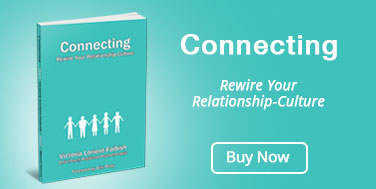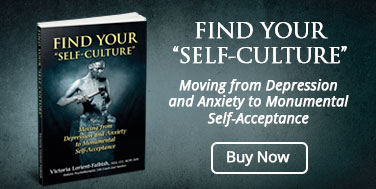When does being generous of spirit become being a doormat? When does being a “can do” person become a problem? These are questions that many contend with as they learn about the concept of having and setting healthy boundaries. By definition a boundary is the emotional and physical space that we place between ourselves and others. Setting proper boundaries is important to our mental, emotional, physical and professional health. When appropriate boundaries are not set, we run the risk of creating resentment, feeling depressed, overwhelmed and inauthentic. When poor boundaries are in place in a relationship we are both too detached and isolated or too dependent upon others.
We develop our world view by the time we are 6 or 7 and our sense of self is impacted by that view. The messaging, the relationships and the way the family members communicated with each other and others affect one’s adulthood. This is where we begin to learn whether or not we feel a sense of self value and whether or not boundaries are safe to have or not. A survival tactic in a family may be never having boundaries in order to belong and feel loved in the tribe. A child may learn that the only way to survive is to be compliant and to abdicate all power. Also poor boundaries can ensue from an over enmeshed family dynamic. For example families that have allot of unsolicited advice, overprotection, no privacy, passive aggressiveness, criticism, guilt and manipulation all negatively impact good boundary learning.
Culturally, saying “no” can be difficult. We are taught to be accommodating. Women particularly seem to battle with the struggle of empowering their “no” without guilt. But men are not immune. The reality is that without boundaries you are likely to lose your real self, your autonomy and your well being in a relationship. Codependence will ensue in which your sense of self esteem rises and falls based on other’s opinions, moods and tones. Feeling your own emotions and limits becomes subjugated to other people’s wants and needs. A person with low self value will have the subconscious agenda to do whatever the other person wants in order to not be abandoned and to be accepted.
Feeling and behaving like a hostage in a relationship is a common feeling when boundaries are unhealthy. One acts in ways to avoid anger or conflict of any sort. Doing and saying things that are not authentic in order to be liked become the main way of being in a boundary-less relationship. As well as loaning money you don’t want to give and giving gifts or doing favours that are beyond your means or inappropriate. Self empowerment therefore takes a back seat and resentment become the main currency in the relationship. With poor boundaries, relationships become a scary place that one cannot relax and be genuine in. Isolation becomes a preferred mode of self protection. Conversely clinging and doing whatever the other wants can also ensue. Either scenario is defeating.
The Anatomy of a Good Boundary
The first and most important piece in healthy boundary oriented relationships is getting clear on what you are feeling. The habituation of having poor boundaries for so long results in numbing out feelings that are important clues. You don’t even recognize when the boundaries are unhealthy. If you are constantly feeling angry, frustrated, hurt, resentful, boxed in, pushed, rebellious or victimized in a relationship, these are signs and symptoms that there are boundary issues in that relationship. Pay attention to what you are feeling. Don’t just rationalize it away!
Also it is very difficult to simultaneously create limits and boundaries and take care of other people’s feelings. They may feel hurt, taken aback or even angry. All you can do is take care of yourself and try to communicate in a clear but kind and gentle manner. Practice alone before you speak to the other person. It does get easier. The freedom one derives from boundary setting is profound!
It is important to remember that setting boundaries is not about controlling your loved ones. Others may say you are doing this but really they are just not used to this more empowered and vocal side. Drawing boundaries is more about defining what is acceptable to you and letting others know about it in a peaceful, clear and certain way. Consistency is a very crucial aspect in order to send a clear message that a new dynamic is taking place. Remember that very little will change if you set a boundary and then not follow through on it. Also,you are only responsible for your own feelings. It is important to disinvest from the outcome of a boundary setting moment. You cannot please everyone all of the time.
Good Boundary Communication
Sometimes the words are just not there if you haven’t practiced or been taught good boundaries. Here are some examples of sentences you might use to create a good boundary when negotiating in a relationship:
I would appreciate you not yelling at me when you are angry. I will listen to you if you speak calmly to me.
I ask that you lower your voice please.
That just does not work for me. Please stop it.
Do not belittle, judge or criticize me. If you continue I will not participate in this conversation. (And follow through!)
This is all I can take on. This is my limit.
I will be leaving by 5pm today. Tomorrow I will pick up where I left off.
I need for you to communicate with me calmly and honestly when we disagree. I won’t participate in violent communication.
I need to leave now.
I am not ready yet. I need more time.
This is who I am.
Baby steps at first are the name of the game. With time good boundaries will be a real part of your life. A new normal is just around the corner. Be consistent. Be good to yourself. You need to fill your own cup first and only give to others from the overflow.









What great insight and advice. Thanks, Victoria. I’ll get back to commenting fully when I’ve share with a very good friend.